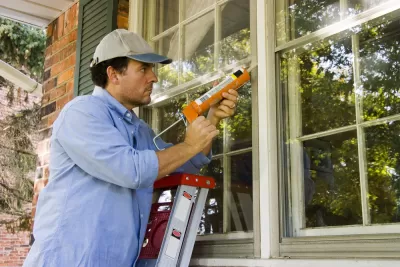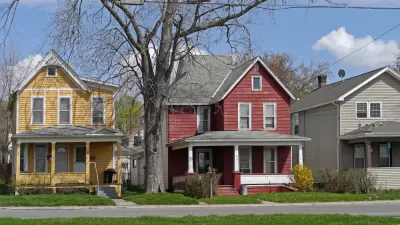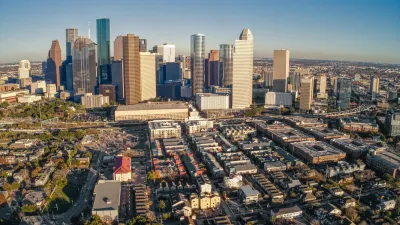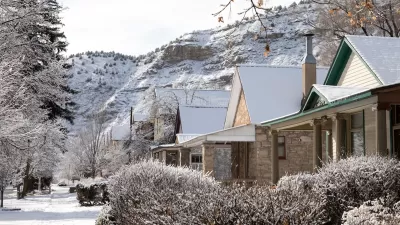Deferred home maintenance can lead to serious structural, safety, and health issues. A new program in Pennsylvania aims to fill the gaps in home repair and weatherization programs.

High utility bills and years of deferred maintenance have forced many low-income homeowners and renters in Pennsylvania to live with lead paint, drafty windows, leaky roofs, exposed wiring, mold, and other health hazards. Many residents endure these conditions because they can’t afford to make repairs. Others are forced to abandon their homes, allowing pests and crime to fester, or sell to an investor.
It’s a story heard in both urban and rural communities across Pennsylvania, with many weatherization and home repair programs failing to address the root problem and more homes falling further into disrepair.
The Whole-Home Repairs Program aims to address this issue by providing grants to low-income homeowners and forgivable loans to small landlords for critical habitability repairs and energy efficiency and accessibility upgrades. The program also dedicates resources to coordinate home repair and weatherization programs and provides funding for workforce development to train people to do the work.
After a spring push to introduce the Whole-Home Repairs legislation, known as Senate Bill 1135, by Sen. Nikil Saval, the Pennsylvania legislature approved $125 million for fiscal year 2022-23 for the Whole-Home Repairs Program. It’s a one-time influx of dollars from the American Rescue Plan Act, but Saval is confident the program will prove its value and receive ongoing funding. The program includes money for income-eligible homeowners to apply for grants of up to $50,000 for home repairs. For a household to qualify, income cannot exceed 80 percent of the area median income.
“We’re glad that the Legislature acted to enact something that is popular and will be popular,” says Saval, a Democrat representing Philadelphia, who gathered a coalition of community organizations, housing and energy advocates, and residents to support the Whole-Home Repairs Act. “We know from our survey data there is immense need for this across the commonwealth.”
Need for Home Repair Reform
Pennsylvania, and particularly Philadelphia, has some of the oldest housing stock in the nation. Roughly one in four Pennsylvania voters need critical repairs to their homes and almost one in three say their utility bills are unaffordable. Almost half of Pennsylvania voters who are homeowners, including many in Philadelphia ...
FULL STORY: Sealing the Cracks in Weatherization and Home Repair

Study: Maui’s Plan to Convert Vacation Rentals to Long-Term Housing Could Cause Nearly $1 Billion Economic Loss
The plan would reduce visitor accommodation by 25,% resulting in 1,900 jobs lost.

North Texas Transit Leaders Tout Benefits of TOD for Growing Region
At a summit focused on transit-oriented development, policymakers discussed how North Texas’ expanded light rail system can serve as a tool for economic growth.

Using Old Oil and Gas Wells for Green Energy Storage
Penn State researchers have found that repurposing abandoned oil and gas wells for geothermal-assisted compressed-air energy storage can boost efficiency, reduce environmental risks, and support clean energy and job transitions.

From Blight to Benefit: Early Results From California’s Equitable Cleanup Program
The Equitable Community Revitalization Grant (ECRG) program is reshaping brownfield redevelopment by prioritizing projects in low-income and environmental justice communities, emphasizing equity, transparency, and community benefits.

Planting Relief: Tackling Las Vegas Heat One Tree at a Time
Nevada Plants, a Las Vegas-based nonprofit, is combating the city’s extreme urban heat by giving away trees to residents in underserved neighborhoods, promoting shade, sustainability, and community health.

How Madison’s Tree Planting Efforts Are Growing a Healthier Community
Madison’s annual tree planting initiative is enhancing environmental resilience, public health, and community livability by adding 1,400 carefully selected trees citywide, with strong community and institutional support for urban forestry.
Urban Design for Planners 1: Software Tools
This six-course series explores essential urban design concepts using open source software and equips planners with the tools they need to participate fully in the urban design process.
Planning for Universal Design
Learn the tools for implementing Universal Design in planning regulations.
Ascent Environmental
Borough of Carlisle
Institute for Housing and Urban Development Studies (IHS)
City of Grandview
Harvard GSD Executive Education
Toledo-Lucas County Plan Commissions
Salt Lake City
NYU Wagner Graduate School of Public Service





























